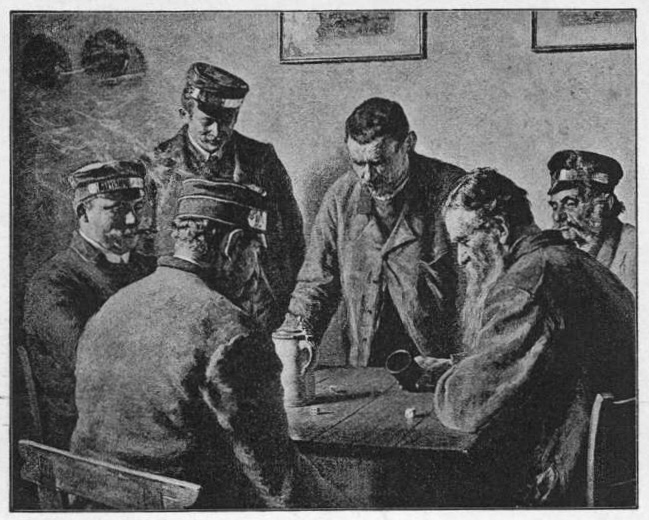Dienstmann on:
[Wikipedia]
[Google]
[Amazon]

 A ''Dienstmann'' (plural: ''Dienstleute'' or, in Austria, ''Dienstmänner'') was a
A ''Dienstmann'' (plural: ''Dienstleute'' or, in Austria, ''Dienstmänner'') was a

 A ''Dienstmann'' (plural: ''Dienstleute'' or, in Austria, ''Dienstmänner'') was a
A ''Dienstmann'' (plural: ''Dienstleute'' or, in Austria, ''Dienstmänner'') was a medieval retainer
"Bastard feudalism" is a somewhat controversial term invented by 19th century historians to characterise the form feudalism took in the Late Middle Ages, primarily in England in the Late Middle Ages. Its distinctive feature is that middle-ranki ...
or vassal
A vassal or liege subject is a person regarded as having a mutual obligation to a lord or monarch, in the context of the feudal system in medieval Europe. While the subordinate party is called a vassal, the dominant party is called a suzerain ...
and, later, a hired man, in German-speaking countries, particularly in Austria
Austria, , bar, Östareich officially the Republic of Austria, is a country in the southern part of Central Europe, lying in the Eastern Alps. It is a federation of nine states, one of which is the capital, Vienna, the most populous ...
until the first half of the 20th century.
Usage
The term ''Dienstmann'' first surfaced in theMiddle Ages
In the history of Europe, the Middle Ages or medieval period lasted approximately from the late 5th to the late 15th centuries, similar to the post-classical period of global history. It began with the fall of the Western Roman Empire ...
as a Germanicization of the Latin word ministerialis, for men, who served at a court and, in the course of time, were raised to be armiger
In heraldry, an armiger is a person entitled to use a heraldic achievement (e.g., bear arms, an "armour-bearer") either by hereditary right, grant, matriculation, or assumption of arms. Such a person is said to be armigerous. A family or a cl ...
s with a social status similar to that of free knight
A knight is a person granted an honorary title of knighthood by a head of state (including the Pope) or representative for service to the monarch, the church or the country, especially in a military capacity. Knighthood finds origins in the Gr ...
s (''Ritter'').
However the term ''Dienstmann'' could also refer to men who were obliged to pay duties or render socage
Socage () was one of the feudal duties and land tenure forms in the English feudal system. It eventually evolved into the freehold tenure called "free and common socage", which did not involve feudal duties. Farmers held land in exchange for cle ...
to their liege lords a '' socager'', or ''socman''. Unlike ministeriales
The ''ministeriales'' (singular: ''ministerialis'') were a class of people raised up from serfdom and placed in positions of power and responsibility in the High Middle Ages in the Holy Roman Empire.
The word and its German translations, ''Minist ...
, they held a lower social rank equivalent to the English serf.Bachrach, Bernard S. "Charlemagne and the Carolingian General Staff" Journal of Military History 66, no. 2 (2002) p. 316-7
Later, the term described was used to describe a hired man who, in public service or in a private household, was contracted to perform time-limited functions of all types in return for a fee. His main duties were the carriage of belongings, such as suitcase
A suitcase is a form of luggage. It is a rectangular container with a handle typically used to carry one's clothes and other belongings while traveling. The first suitcases appeared in the late 19th century due to the increased popularity of m ...
s, and messenger duties.
In fiction
Well-known fictional ''Dienstmänner'' are the ''Dienstmann'', Alois Hingerl, inLudwig Thoma
Ludwig Thoma (; 21 January 1867 in Oberammergau – 26 August 1921 in Tegernsee) was a German author, publisher and editor, who gained popularity through his partially exaggerated description of everyday Bavarian life.
After graduation from ...
's Satire ''Ein Münchner im Himmel'' or Hans Moser and Paul Hörbiger, the ''Dienstmänner'' in the film ''Hallo Dienstmann''. As a so-called ''Berliner Original'', the ''Dienstmann'', Ferdinand Strumpf, went under the name, Eckensteher Nante.
References
Literature
* Hans Delbrück, trans. Walter Renfroe Jr. History of the Art of War, Volume III: Medieval Warfare (Lincoln, NE: University of Nebraska Press, 1982) * Fritz Keller: ''Hallo Dienstmann!'' In: ''Wiener Geschichtsblätter'' 62. Jg., 2007, , pp. 1–16. * Fritz Keller: ''Ignaz Israel Pokart – der letzte jüdische Dienstmann''. In: Verena Pawlowsky, Harald Wendelin (ed.): ''Raub und Rückgabe''. Vol. 2: ''Arisierte Wirtschaft''. Mandelbaum-Verlag, Vienna, 2005, , pp. 85–88. * Valentin Ferdinand von Gudenus, Friedrich Carl von Buri, Heinrich Wilhelm Anton Buri (ed.): ''Codex Diplomaticvs. Exhibens Anectoda Ab Anno DCCCLXXXI, Ad MCCC. Mogvntiaca, Ivs Germanicvm, Et S. R. I. Historiam Illvstrantia''. 5 vols., Göttingen etc., 1743–1768. *Wilhelm Scherer
Wilhelm Scherer (26 April 18416 August 1886) was a German philologist and historian of literature. He was known as a positivist because he based much of his work on "hypotheses on detailed historical research, and rooted every literary phenomeno ...
(ed.): ''Hohenfurter Benedictinerregel''. In: ''Zeitschrift für deutsches Alterthum'' NF 4 = 16, 1872, , pp. 224–279.
* Richard Schröder: ''Lehrbuch der deutschen Rechtsgeschichte''. 6th revised edition by Eberhard von Künßberg. de Gruyter, Berlin etc., 1922.
* James Westfall Thompson. "German Feudalism". The American Historical Review 28, no. 3 (1923) 440-474.
External links
{{Authority control Titles German feudalism Civil services Medieval titles Legal history of the Holy Roman Empire German words and phrases